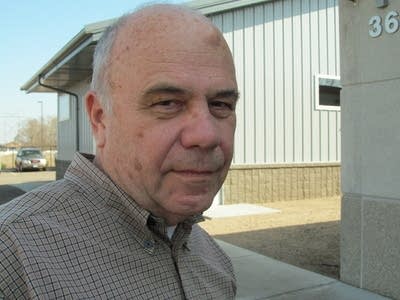Monticello municipal broadband slugs it out

When the city of Monticello started providing broadband service in late 2010, advocates hailed it as a model for bringing new technology to an underserved region. Fiber optic lines were making Internet access as fast as anywhere in the state.
But a little over a year later, the debate over whether municipalities should get into the broadband business is far from settled. Monticello, a city of about 12,000 people northwest of Minneapolis, has found operating in a largely private marketplace challenging, and some lawmakers would like to prevent other cities from taking on the same risks.
Bill Tapper, who owns a cabinet company with clients around the world, recalls a time just a few years ago when the Internet was so slow it hurt business.
"The service we had in Monticello was horrible," he said. "My employees would sometimes take the data home where they had a better Internet connection than we did and do their uploads at night."
Create a More Connected Minnesota
MPR News is your trusted resource for the news you need. With your support, MPR News brings accessible, courageous journalism and authentic conversation to everyone - free of paywalls and barriers. Your gift makes a difference.
Tapper said he lost out on business, but at the time the established Internet service providers like phone and cable TV companies told Tapper and other frustrated business owners in town that the city was wired sufficiently.
With no where else to go, the business community approached the city for help, asking that it build its own broadband network.
"I didn't see that there was an alternative," Tapper said.
It took years. The community had to vote on the network, sell $26 million in bonds and overcome a lawsuit from phone company TDS Telecom, one of the companies already providing service in the area.
Finally, by December 2010, customers were starting to get service from the city-owned broadband company.

Monticello is now one of the most wired, competitive markets in the country, with some of the best prices.
But not everyone wants the public to be in the telecom industry. Laws in 19 states, including Minnesota, provide some barrier for publicly owned telecoms.
Earlier this month Rep. Linda Runbeck, R-Circle Pines, introduced a bill in the Legislature that would be the most restrictive on the books. It would prohibit publicly owned broadband, telephone or cable systems in the state. The bill is dead this session, but Runbeck says she plans to introduce it again.
As it was written, it wouldn't have affected Monticello. But it would prevent other outstate Minnesota communities from doing something similar.
"You're putting the public sector right up against the private sector," Runbeck said. "It's clearly a very competitive industry ... It's a high risk industry. Why should we put that risk on the taxpayer?"
Broadband competition in Monticello has been fierce. A deal by Internet provider Charter Communications to entice users to switch service took about 5 percent of the city's customer base in a matter of months. In addition, TDS offers package deals at prices the city-owned company Fibernet has a hard time competing with.
TDS is unapologetic about the competition. Drew Petersen, head of external affairs for the company, maintained Monticello's Internet was just fine before the city got involved. But he also acknowledged that while the city was tied up with the lawsuit TDS filed, the company installed its own broadband network. Petersen said telecom companies and governments should partner on service, not compete.
"We have seen through the lawsuit that was really a delay tactic."
"Philosophically, I think state residents and policy makers have to contemplate, is there a role for public municipalities to play and is that the best utilization of, of municipal and taxpayer dollars?"
Compounding the challenges for Monticello, building permits are down, so growth isn't what the city expected. It also faces an $880,000 debt payment coming up in June that will be difficult to pay. Right now the city is trying to work out a deal with its bondholders.
Jeff O'Neill, Monticello's city administrator, is optimistic and says a successful municipal project is threatening to the established telecommunication companies.
"We have seen through the lawsuit that was really a delay tactic," O'Neill said. "And we have seen through really super aggressive pricing practices, where people are getting services what appear to be far below costs — an effort to hurt our project. And quite frankly it does do damage. But we're working through that."
Supporters of publicly owned broadband point to the fact that if communities don't at least have the threat of building their own network, it gives companies little incentive to invest in infrastructure.
Christopher Mitchell, a telecommunications expert with the Minneapolis-based Institute for Local Self-Reliance, uses Monticello as an example.
"Now everyone's saving money because everyone's lowering their prices," he said. "If you outlaw even the possibility that communities could build those networks, then there's less incentive for private providers to build, to invest in these communities."
Many cities and towns in outstate Minnesota have been wrestling with how to improve broadband performance for residents. The state has a goal of ubiquitous access for the entire state by 2015 and the bar for what is considered adequate service continues to rise.
Monticello has been contacted by officials in the neighboring towns of Becker, Annandale and Big Lake, wanting to know how Monticello got it done. There's also an effort in Sibley and Renville counties to bring broadband to rural areas that don't have it.

